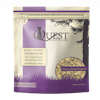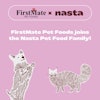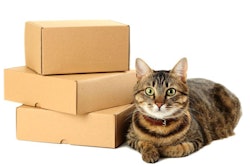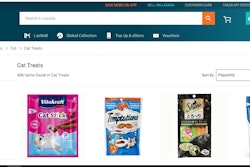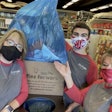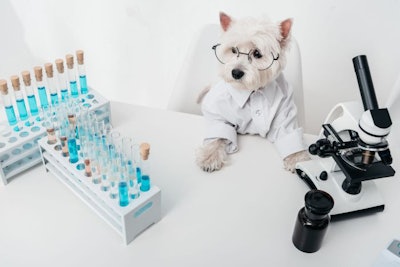
Many livestock live close to the soil, and that soil harbors bacteria, such as Clostridium, which form spores that potentially hitch rides on fresh animal products, Daniel Stoffner, product manager for Bühler, said in a video from Petfood Forum (below). So, the more fresh meat a kibble formulation contains, the more that pet food makers must beware of spore-forming bacteria. Unlike animal meals and other co-products, fresh meat hasn’t gone through a kill step that wipes out spore-forming bacteria.
“[In high-meat kibble extrusion], we haven't had a cooking step as there would have been with a rendered meal, and so that’s where the difficulty starts,” he said. “That's the biggest risk besides Salmonella… That's why pasteurization is just not enough.”
Pet food retailers demand safety certifications
Pet owners increasingly demand certainty that their dogs, cats and other pets aren’t exposed to those pathogens. Pet food retailers responded by looking for third-party certification of pet foods they sell. Over the past decade, Stoffner has seen growth in the demand for documentation that pet foods meet safety standards, such as the British Retail Consortium and International Featured Standards.
About Petfood Forum events
To learn more about high-meat pet food extrusion attend Petfood Forum. Petfood Forum is the not-to-be-missed trade show event for pet food professionals from around the world to network, exchange ideas and do business with one another and with the industry's leading pet food manufacturers and suppliers.

